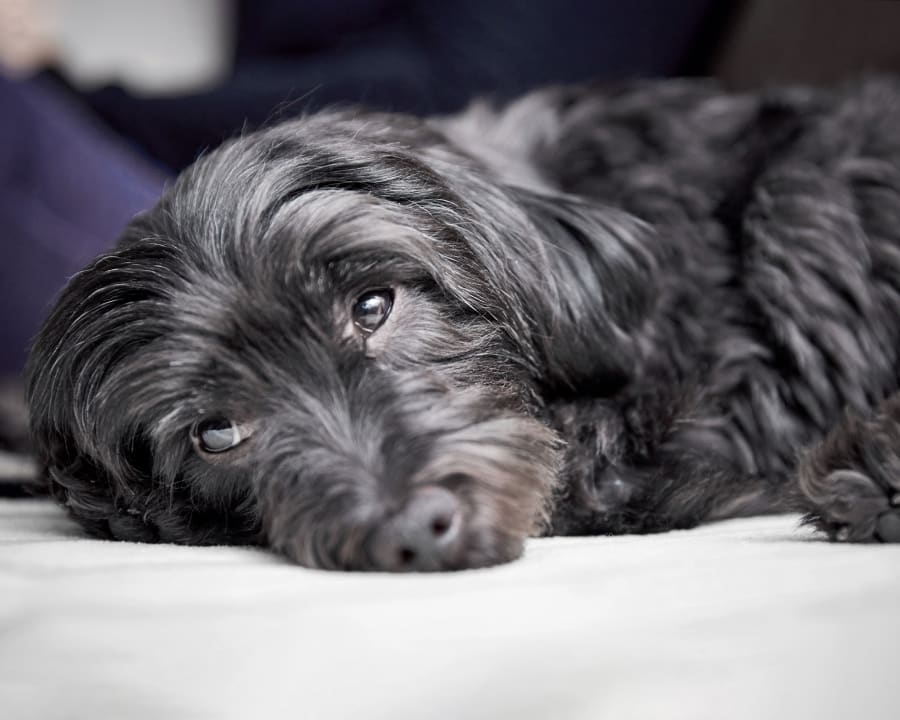What is Pet Dental Surgery?
Pet dental surgery is a catch-all term for any surgical procedure that addresses oral health issues experienced by your pet.
Routine dental health care, both at home and at annual appointments, is the best way to ensure your pet's oral health and prevent the need for surgeries to help restore their health and comfort.
With that being said, our expert veterinary professionals also offer surgical services to restore your pet's dental health (and overall health too) by treating a wide variety of issues, from cracked teeth to the advanced stages of gum disease.
These surgeries, in addition to preventive dental treatment plans, set your pet up for success after suffering from an oral health issue.

Common Dental Conditions
Some of the most common dental health issues that require treatment with dental surgery are as follows:
- Jaw fractures
- Tooth decay
- Feline stomatitis
- Cracked or broken teeth
- Severe gum disease (periodontitis)
- TMJ (temporomandibular joint) luxation or dysplasia
Cat & Dog Dental Surgery FAQs
- What happens during the surgical consultation?
During the surgical consultation, our vets will perform a physical examination of your pet and conduct tests, including blood work, in order to determine the nature of their condition.
Diagnostics may include x-rays, an EKG, an ultrasound, or biopsies. Once the results are back, a plan for surgery is developed and discussed with you.
- Will the surgery and consultation happen on the same day?
It varies. A consultation appointment is required for testing and examination to determine the nature of your pet’s health problem.
Once any diagnostic test results have come back from our lab, we may schedule your pet’s surgery for the same day, or we may need to set the surgery for another day.
- How long will the surgery take?
Dental surgeries will commonly last between 2 and 4 hours. The exact amount of time required by your pet's dental surgery will depend on their condition and the exact procedure being used to treat them.
- Does my pet have to stay at the hospital overnight either before or after the surgery?
Most dental surgery patients are able to return home the same day as their surgery.
In some cases, however, pets will require additional monitoring overnight. In instances like this, pet owners will transfer their pet to a local 24hr emergency hospital for overnight monitoring before their companion can return home safely.
Home Care After a Pet Dental Surgery
After completing dental surgery, your vet will hold your pet for monitoring. Once it is safe for your pet to return home, our vets will let you know when to come to pick your companion up.
Depending on the kind of dental surgery your pet underwent, they will have different needs. First and foremost, you should follow the post-operative care instructions provided to you by your vet. If you cannot remember, you can always contact them to ask.
Your pet may need pain relief and anti-inflammatory medications. They will also need a fair amount of rest and relaxation. As a rule, try to prevent your pet from pushing themselves too hard physically for at least 48 hours after their dental procedure.
And since dental surgery may make your pet's mouth sensitive and prone to injury or infection while it heals, it is important to follow your vet's instructions closely when it comes to feeding and providing water for your companion.
If your pet is rubbing their mouth, is refusing to eat or is showing signs of infection such as swelling or bleeding, get in touch with Brodheadsville Veterinary Clinic as soon as possible for assessment and treatment.
New Patients Welcome
At Brodheadsville Veterinary Clinic, we are always accepting new patients. Our veterinarians' experience and passion for animal medicine makes all the difference to your pet's care. Contact us today to schedule your pet's first appointment!
Contact
Hours
Open 6 Days a Week
-
Click to View
- Monday:08:00 am - 06:00 pm
- Tuesday:08:00 am - 06:00 pm
- Wednesday:08:00 am - 06:00 pm
- Thursday:08:00 am - 06:00 pm
- Friday:08:00 am - 06:00 pm
- Saturday:Closed
- Sunday:Closed
Please note that we are closed every Tuesday from 12 pm to 1:30 pm.
